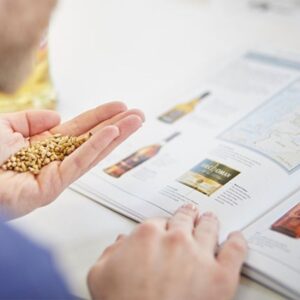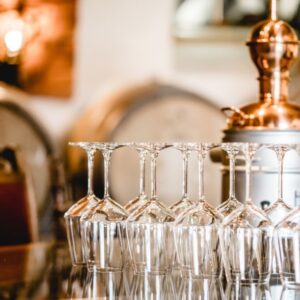Dreaming of changing your life and turning your passion for wine and spirits into a real career?
You are not alone. Every year, more and more professionals from other industries choose to make a career change into this fascinating sector. The wine and spirits market is dynamic and constantly evolving, offering a wide range of professional opportunities – from sommelier and wine sales to consulting, education, and export management.
Successfully transitioning into a career in wine and spirits is more than just loving wine: it requires combining passion, technical skills, and a strong professional network.
The right training programs, such as WSET certifications, provide the essential knowledge to start or accelerate your career in the wine and spirits industry.
In this article, we guide you step by step to turn your passion into a profession – from reflecting on your existing skills to gaining practical experience in the field, covering essential certifications and strategies to build your reputation in the sector.
You will discover that, with motivation and proper training, a successful career change into wine and spirits is entirely possible – no matter your background.

1. Why make a career change into wine and spirits?
The wine and spirits sector is booming, offering unprecedented opportunities for those looking to give a new direction to their professional life.
Whether you are drawn to sommelier work, specialized sales, spirits consulting, education, or export management, the industry is rich and diverse, providing a variety of paths for your career transition.
A Dynamic and Diverse Market
The global wine and spirits market is steadily growing, fueled by increasing consumer interest in high-quality products and unique tasting experiences.
This growth translates into a wide range of professional opportunities, including:
- Sommelier: advising restaurant clients, managing wine lists, and organizing tastings.
- Wine shop manager / Retailer: selecting, purchasing, and selling wines and spirits while guiding customers in their choices.
- Wine or spirits consultant: helping businesses with product strategy, marketing, and distribution.
- Educator or trainer: sharing knowledge about wines and spirits, particularly through recognized certifications like WSET.
- Export and international trade: developing brand presence in foreign markets and managing commercial relationships.
- Wine tourism professional: designing and hosting wine experiences, visiting wineries, organizing tastings, and showcasing wine heritage to visitors.
- Sales representative / Commercial roles: boosting wine and spirits sales, building lasting client relationships with professionals and consumers.
- Corporate buyer: selecting and negotiating purchases of wines and spirits for restaurants, hotels, or distributors, ensuring quality and profitability.
The Benefits of a Passion-Driven Career
Choosing a career in wine and spirits means combining passion with profession.
The advantages are numerous:
- Creativity: crafting wine lists, organizing events, or developing original cocktails.
- Networking: connecting with producers, industry professionals, and knowledgeable enthusiasts.
- Travel and culture: exploring wine regions, discovering local traditions, and immersing yourself in diverse wine cultures.
Successful Career Transitions
Many professionals from completely different backgrounds have successfully transitioned into wine and spirits thanks to structured training and hands-on experience.
For example, former managers or teachers have completed WSET programs to become sommeliers or trainers in wine and spirits, building rewarding careers in the industry.
These examples show that with motivation and structured learning, a successful career change is within reach for everyone.
You can discover inspiring career change stories with WSET certifications in our dedicated blog article.
Some Examples of Successful Career Changes at Weeno
At Weeno, many professionals have turned their passion for wine and spirits into real career opportunities.
- A former Chronopost delivery driver completed WSET Levels 1 and 2 in spirits before launching his own business specializing in Caribbean rums.
- Several trainees pursued WSET Levels 2 and 3 in wine while preparing to open their own restaurants.
- A candidate from LVMH used WSET Level 3 to move from the Fashion division to the Wine and Spirits division (Moët Hennessy), completing a strategic career shift within the group.
- Our courses also attract seasonal workers looking for roles in wine tourism or yachting, as well as professionals aiming to open a wine bar or reposition themselves within a company.
These examples demonstrate that a career change in the wine and spirits industry is accessible to everyone, provided you receive proper training and follow the right steps.
In summary, entering the wine and spirits sector means joining a stimulating and dynamic universe, where your passion can be transformed into a real career in wine, while taking advantage of numerous opportunities in the spirits industry.

2. Key steps to successfully change your career into wine and spirits
Successfully transitioning into a career in wine and spirits requires a structured approach, combining self-reflection, training, networking, and practical experience.
Here are the essential steps to turn your passion into a thriving career.
2.1 Assess Your Skills and Motivations
Before diving in, it’s crucial to understand your strengths and what drives you:
- Identify transferable skills: your previous professional experience can be a major asset. Skills in sales, communication, logistics, or management are highly valued in the wine and spirits industry. Even prior tasting experience can become an advantage.
- Define your career goals: do you aim to become a sommelier, a wine shop manager, a wine and spirits trainer, or focus on export and international distribution? Clarifying your goals will help you choose the right training and experiences.
- Practical exercises: conduct a personal assessment, test your skills, and note your preferences to identify the careers that best match your profile.
2.2 Get Trained to Acquire Technical Skills
Training is a cornerstone of a successful career change:
- Recognized certifications: programs like WSET (Wine & Spirit Education Trust), the Court of Master Sommeliers, or ISG provide international recognition and open numerous doors.
- Short courses vs. full programs: depending on your availability and goals, you can choose short modules (tasting, food & wine pairing) or a full program covering viticulture, winemaking, spirits, and management.
- Essential modules to master: professional tasting, viticulture and winemaking, spirits, food & wine pairing, market analysis, and consumer behavior.
- Wine and spirits English: mastering technical vocabulary and professional exchanges in English is essential for working in international markets. Specialized programs allow efficient development of this skill.
- CPF-eligible training and LTE certification: to support your career change, some professional programs can be financed through the French CPF, and provide the LTE certification, recognized by employers and enhancing your profile internationally.
2.3 Build Your Network and Visibility
Networking is a strategic asset in the wine and spirits sector:
- Attend industry events: well-known fairs and exhibitions such as Wine Paris, Whisky Live Paris, Prowein, Vinitaly, as well as masterclasses, tastings, and conferences, are excellent opportunities to meet professionals, producers, and enthusiasts.
- Professional networks online: platforms like LinkedIn and other specialized communities are ideal for increasing your visibility, sharing projects, and staying updated on industry trends.
- Mentorship and sponsorship: surrounding yourself with experienced professionals accelerates learning and uncovers opportunities that are often not advertised.
2.4 Prepare for Interviews and Highlight Your Profile
To land a position, you need to present yourself effectively:
- Tailored CV and cover letter: emphasize your transferable skills and your passion for wine and spirits. Adapt your approach to each role and company.
- Common interview questions: be prepared to discuss your experience, product knowledge, tasting techniques, and ability to work with demanding clientele.
- Practical tips: demonstrate curiosity, motivation, and a strong understanding of the industry to stand out.
You can also read WSET’s article on top tips for excelling in wine and spirits interviews.
2.5 Gain Practical Experience
Nothing replaces hands-on experience in the field:
- Internships and volunteering: restaurants, wine shops, festivals, fairs, and educational events are excellent opportunities to gain concrete skills.
- Personal projects: starting a wine blog, organizing home tastings, or leading workshops helps you get comfortable with audiences and strengthens your expertise.
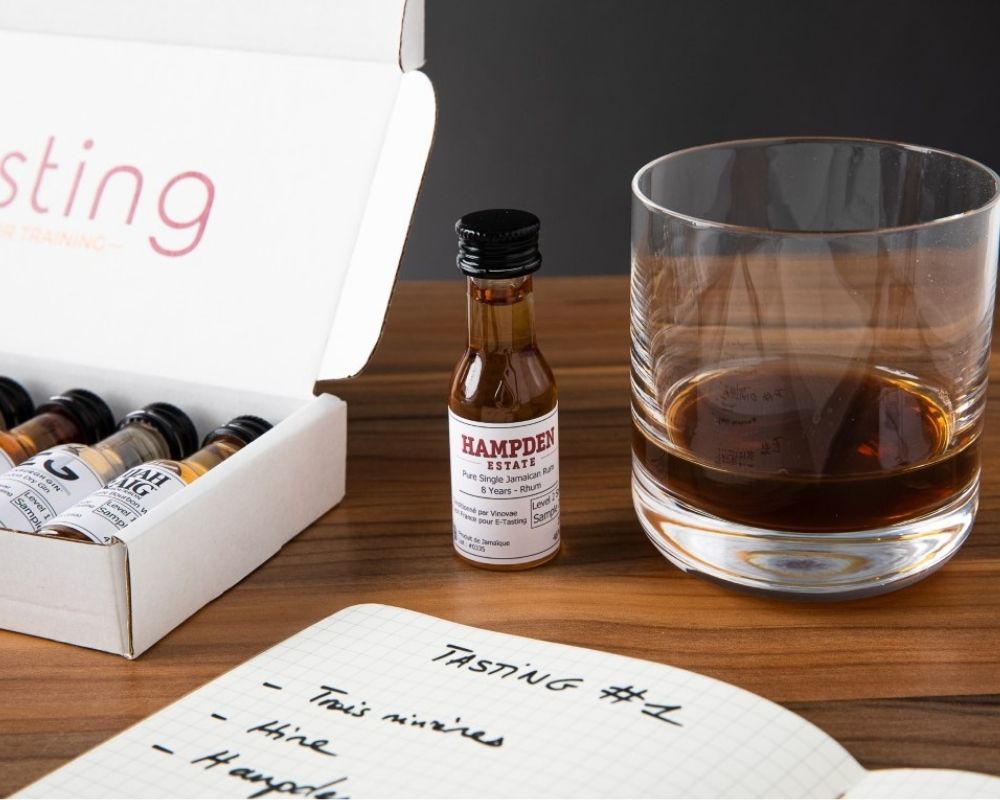
3. Common mistakes to avoid when changing careers into wine and spirits
Transitioning into a career in wine and spirits is exciting, but there are classic pitfalls that professionals should be aware of to succeed.
3.1 Underestimating the Importance of Training
Many people believe that passion alone is enough to succeed.
However, recognized certifications such as WSET or the Court of Master Sommeliers are essential to establish credibility. They provide solid technical knowledge and demonstrate your expertise to employers or clients.
3.2 Neglecting Professional Networking
The wine and spirits industry relies heavily on relationships.
Failing to invest in your professional network—through trade shows, tastings, or platforms like LinkedIn—can slow down your career progression. Mentorship and recommendations are often the keys to access hidden opportunities in the industry.
3.3 Thinking a Career Change Happens Instantly
Changing careers is a process that requires time and patience.
Trying to achieve everything too quickly can lead to frustration. It’s important to plan your steps, progress gradually, and accept that some experiences are first learning opportunities before they are fully leveraged.
3.4 Forgetting to Adapt Existing Skills
Your past experiences are valuable, but they must be translated to the wine and spirits industry.
- Commercial experience can be directed toward selling wines and spirits, managing clients, or working in export.
- Communication experience can be applied to creating educational or digital content about products.
Failing to link transferable skills to the industry is a common mistake many career changers make.
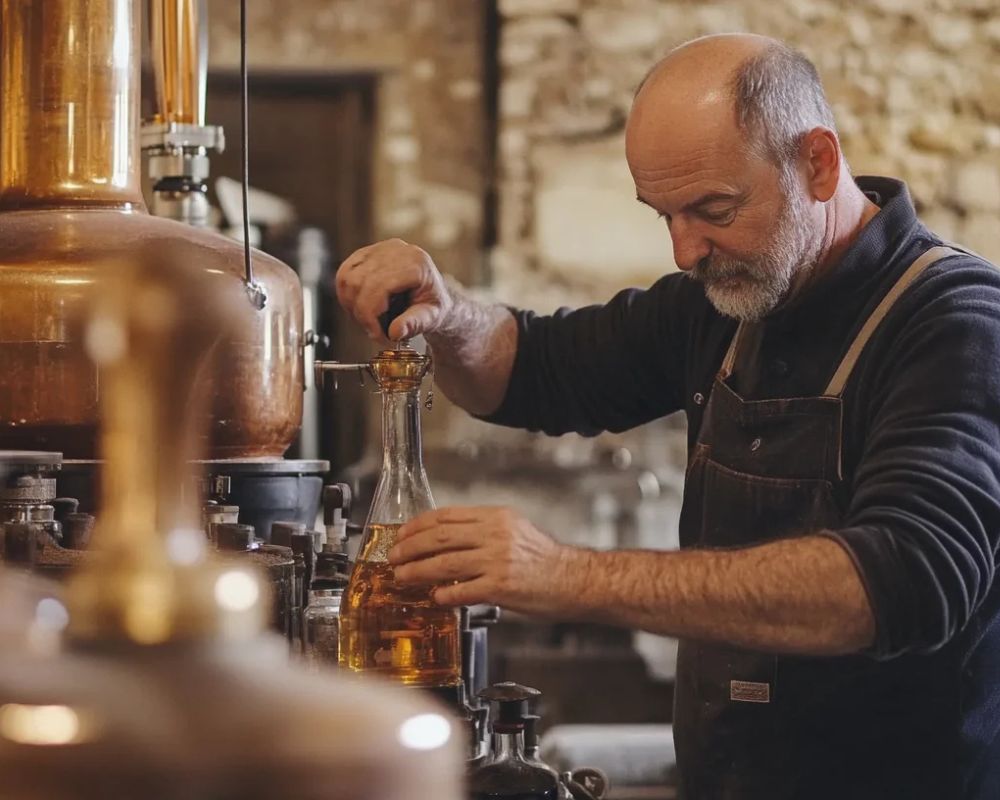
4. Career opportunities in the wine and spirits industry
The wine and spirits industry offers a rich and diverse range of career opportunities, suitable for both beginners and experienced professionals.
Whether you choose to stay in France or pursue international opportunities, the market is constantly expanding and professional roles are evolving.
4.1 Traditional Roles
Some positions remain iconic within the industry:
- Sommelier: expert in food and wine pairings, often working in fine dining restaurants or luxury hotels.
- Wine Merchant (Caviste): specialist in selecting and selling wines and spirits, operating in boutiques or online stores.
- Oenologist: professional involved in wine production, quality control, and wine development.
- Export Manager: responsible for international sales, market development, and export logistics.
- Wine Tourism Host / Guide: leads visitors through vineyards and wineries, conducts tastings, and shares wine and spirits culture.
These roles require technical expertise and proven know-how, often validated through certifications such as WSET.
4.2 Emerging Roles
The sector is modernizing, creating new opportunities, especially for versatile and digital-savvy professionals:
- WSET Educator / Trainer: share your passion and knowledge with students and industry professionals.
- Spirits Consultant: advise companies on product development, marketing strategies, and distribution.
- Digital Content Creator: produce blogs, social media content, or educational and entertaining videos about wine and spirits.
- Brand Ambassador: represent and promote brands internationally at events, trade shows, and tastings.
4.3 Working in France and Internationally
France remains a global reference for wine and spirits, offering opportunities in renowned wine regions and major cities.
Internationally, growing markets such as Asia, North America, and Australia are seeking qualified professionals for sales, education, and brand representation.
A career change in this sector provides access to a dynamic, global market, where passion and technical expertise are key to success.
English proficiency becomes a major advantage for securing top international opportunities. Our bilingual programs with LTE certification allow you to gain both technical vocabulary and the confidence to succeed in English-speaking markets.

5. How WSET courses can accelerate your career change
Embarking on a career change in the wine and spirits industry requires solid and recognized training. Programs offered by the WSET (Wine & Spirit Education Trust) are internationally renowned and serve as a true springboard for building a successful career in this sector.
5.1 WSET: A Global Standard
Founded in the United Kingdom, the WSET is now recognized in over 70 countries and by professionals across the wine and spirits industry worldwide.
Obtaining a WSET certification validates your technical skills and expertise, helping you stand out in applications for a variety of roles, from sommelier to spirits consultant.
5.2 Programs Tailored to Every Profile
WSET courses are designed to support learners at all levels:
- Beginners: WSET Level 1 and 2 provide the foundations of tasting, wine and spirits knowledge.
- Experienced Professionals or Enthusiasts: WSET Level 3 and Diploma deepen skills in tasting, viticulture, winemaking, and market strategies.
These programs combine theory and practice, offering a structured learning path to progress quickly and efficiently.
5.3 Successful Career Changes Thanks to WSET
Many professionals attest to the decisive role of WSET in their wine industry career transitions:
- A project manager became a WSET trainer.
- A sales professional became an independent wine merchant.
- A spirits enthusiast became an international consultant.
These stories show that certified training accelerates the transformation of a passion into a concrete career.
Through WSET certifications, you develop not only your technical expertise but also your credibility and professional network, two essential elements for success in the wine and spirits sector.
Examples of Career Transitions with Weeno
Thanks to WSET courses and bilingual programs offered by Weeno, many professionals have turned their passion for wine and spirits into international careers.
Mastering technical and professional English, both written and spoken, has become a key asset for standing out and advancing in foreign markets.
One inspiring example is Djameel Djengue, a tour guide in a rum distillery in Réunion. By taking WSET courses remotely and receiving language support through CLOE (CPF), he developed strong technical vocabulary in both French and English, gained confidence in public speaking, and established legitimacy with an international audience. Today, Djameel leads tours with more precise and nuanced explanations, and he is exploring new opportunities in the beer industry.
Other trainees have leveraged these skills to secure export manager positions, create bilingual educational content, lead masterclasses, and represent brands at international trade shows.
You can find more inspiring testimonials in our dedicated blog article.
These examples show that a professional career change in the wine and spirits industry is accessible to everyone, provided you get proper training and follow the right steps.
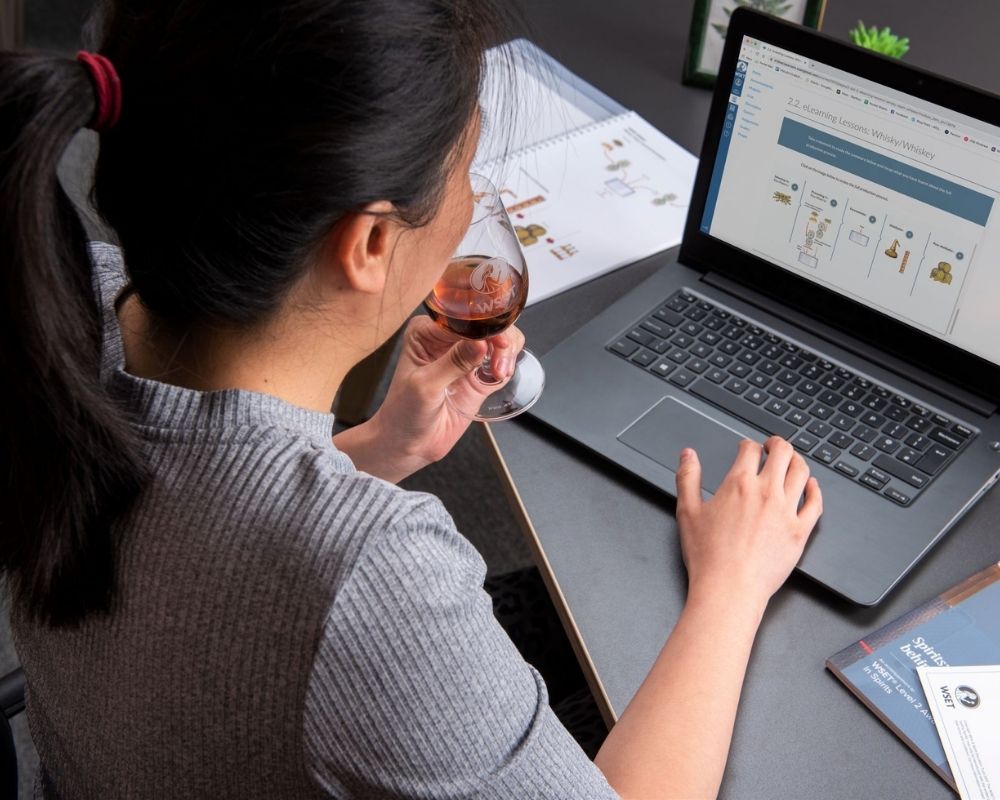
Launch your career change in wine and spirits
Succeeding in a career change in the wine and spirits industry relies on four essential pillars:
- Motivation: a genuine passion for wine and spirits is the driving force behind your success.
- Training: recognized certifications, such as the WSET, provide the technical skills and credibility needed to excel.
- Network: attending trade shows, masterclasses, and professional events helps you connect with key industry players.
- Practical Experience: internships, volunteer work, personal projects, or home tastings strengthen your expertise and confidence.
No matter your age or current career path, the world of wine and spirits welcomes motivated enthusiasts. With the right training and a clear plan, you can transform your passion into a sustainable and rewarding career.
➡️ Discover our WSET courses and start your professional journey in wine and spirits today: weenodrinksacademy.com/formations-wset



